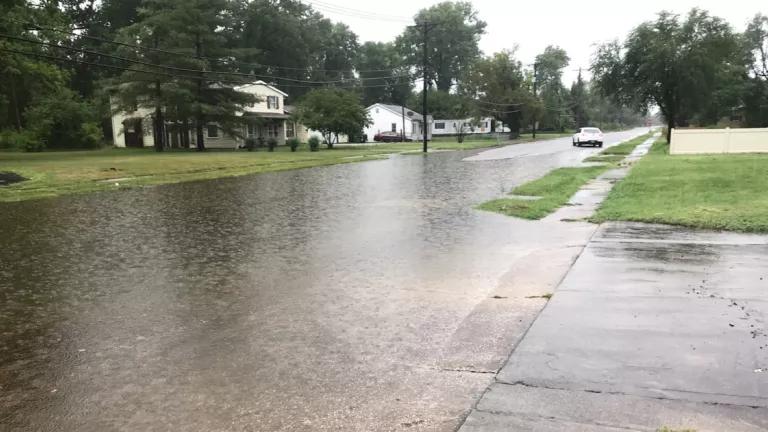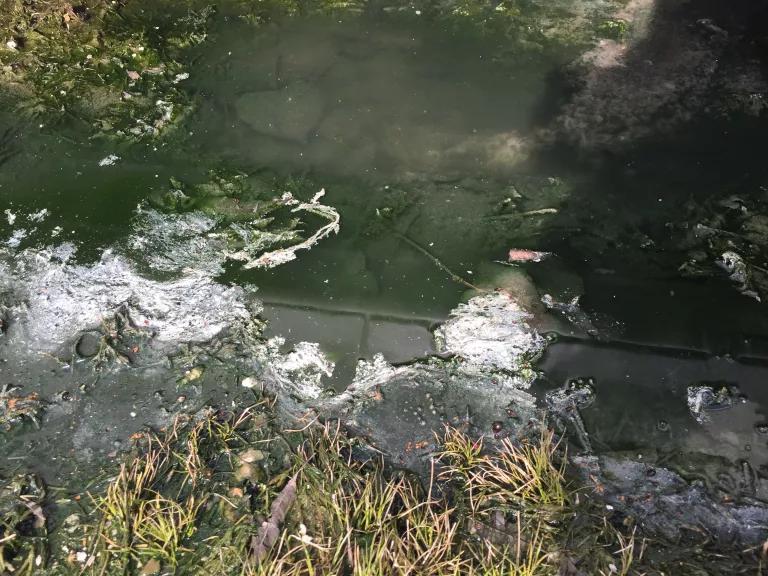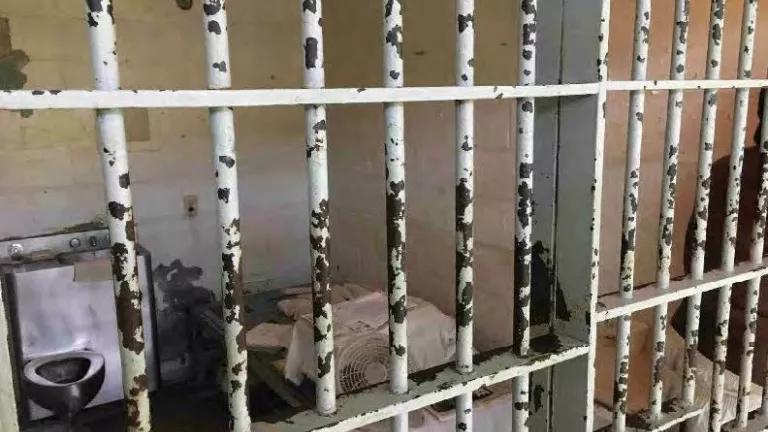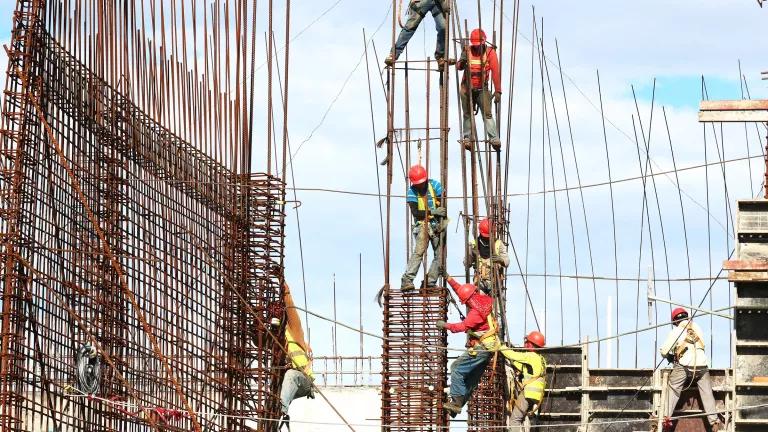The Disinvestment in Centreville Continues
A thorough and equitable plan to solve the flooding and sewage problems in Centreville must be developed to fund the necessary infrastructure repairs.

This blog post was written collaboratively with legal advocates from Equity Legal Services and the Metro St. Louis Equal Housing & Opportunity Council.
The piecemeal approach being taken to fix the serious and reoccurring flooding and stormwater management problems in St. Clair County, particularly in Centreville and East St. Louis, continues to raise concerns. This is a complex problem requiring holistic, innovative, and collaborative solutions through substantial local, state, and federal investments to ensure that the issues are addressed permanently and equitably.
Some agencies and offices have allocated funding and technical resources toward these problems, but despite these commitments a major barrier to progress remains—there is still no clear plan for how and when residents can expect to feel safe in their homes without the risk of being trapped by floodwater contaminated by untreated sewage. Moreover, there is no clear indication of how the proposed solutions will address the racial inequities experienced by the Black communities like Centreville. It is undeniable that race was and remains a factor in the systemic under-resourcing of sewer infrastructure in Centreville and other majority-Black communities in St. Clair County. All plans to fix the water infrastructure in these communities must ensure that these inequities are addressed and that future investments will support the county’s Black communities’ ability to thrive in the same ways whiter and more affluent communities have been able to.

No major infrastructure investments by St. Clair County
In the absence of a plan to guide investments, the City of Cahokia Heights and St. Clair County continue to make investment decisions that do not seem to align with the types of infrastructure investments needed to address the recurring flooding, especially in deeply impacted neighborhoods like Piat Place, Parkside, and Ping Pong. Reporting by the Belleville News Democrat last month revealed that St. Clair County allocated none of its remaining $30 million in COVID-19 American Rescue Plan Act (ARPA) relief funding toward infrastructure improvement in Centreville. After years of statements about how the flooding and sewage crises are priority issues, it is disappointing to learn that the funding would not be used to make a serious investment to address the problems in the county’s stormwater management systems. U.S. Department of Treasury guidance makes clear that ARPA funding can be spent to “make necessary investments in water and sewer infrastructure,” including:
- “Management and treatment of stormwater or subsurface drainage water”;
- “Culvert repair, resizing, and removal, replacement of storm sewers, and additional types of stormwater infrastructure”;
- “Infrastructure to improve access to safe drinking water for individuals served by residential wells, including testing initiatives, and treatment/remediation strategies that address contamination” that are deemed “necessary” per agency guidance.
In fact, the County’s own ARPA Interim Recovery Plans from 2021 and 2022 recognized that the sewer infrastructure issues contribute to disproportionate impacts on low-income residents of the county. Despite that acknowledgement and federal guidance clarifying that sewer infrastructure projects are eligible for ARPA funding, the County failed to allot any of this funding toward sewer projects, apart from $400,000 toward the construction of water utility infrastructure in Signal Hill. Instead, the County approved $14 million toward the design, engineering, and construction of capital improvement at a racetrack and fairgrounds and $9.3 million for capital improvements at the county courthouse, among other projects. This is a missed opportunity to invest in communities that have been disenfranchised by decades of under- and mis-investments.
The County must treat the stormwater and flooding problems faced by its constituents seriously and prioritize its investments accordingly. The Heartlands watershed planning process has made clear that the needs in these communities are large and will require investments even beyond what has already been secured by state and federal agencies, making the County’s lack of investment even more egregious. Continued disinvestment in majority-Black and low-income communities where there are significant needs will only deepen the inequities in communities like Centreville. Even after years of advocacy by Centreville residents, the County remains unwilling to make any significant investments toward infrastructure projects in Centreville and East St. Louis and instead invests in communities with already-functioning infrastructure like Caseyville and Belleville. This must change.
A clear plan is needed
This is additionally concerning given that the Heartlands watershed planning process was intended to facilitate improved coordination among different local and regional stakeholders and support the development of a plan for addressing the flooding in Centreville. The draft materials prepared by the Heartlands Conservancy relies on incomplete or inadequate analysis that isn't grounded in the lived experiences of residents, which could lead to a Watershed Plan with major gaps that could exacerbate existing racial inequities in the County. Centreville residents and the support team have repeatedly raised concerns and recommendations with Heartlands Conservancy both verbally in meetings as well as in writing. The support team submitted comment letters on the draft technical materials and the draft goals, strategies, and actions). It is not yet clear how or if this input will be incorporated into the final Plan.
All relevant offices and agencies must step up in support of residents to ensure this plan is developed as soon as possible so it can inform local, regional, state, and federal investments to address the flooding in Centreville and other impacted areas of St. Clair County. In a moment where there is more funding available for infrastructure projects than ever before and study after study highlights the enormous need for that funding in Centreville, the time to act is now.



